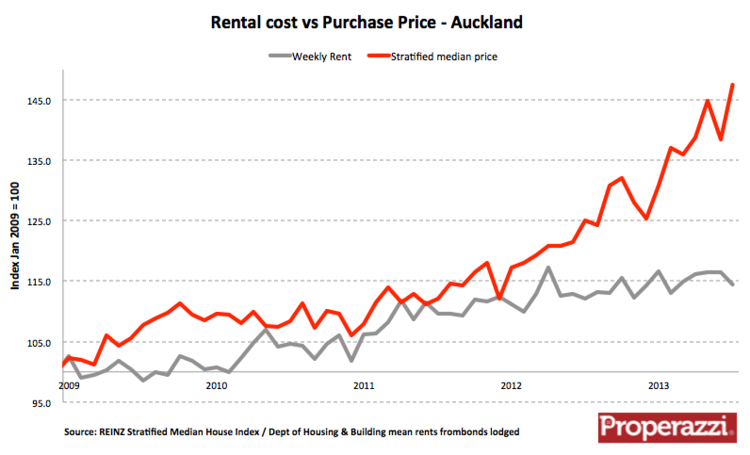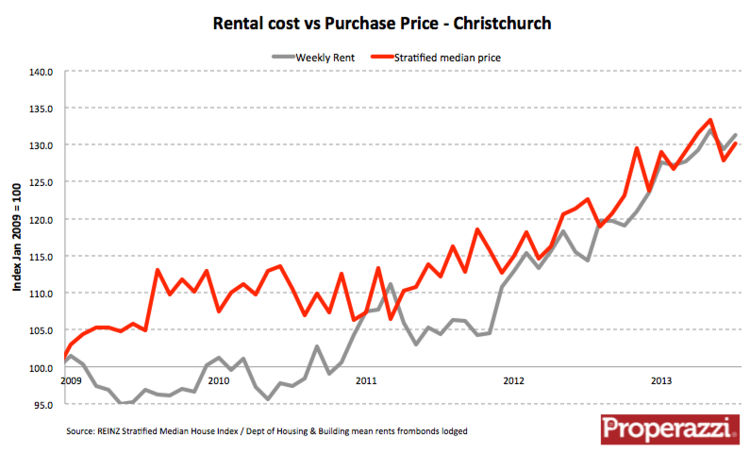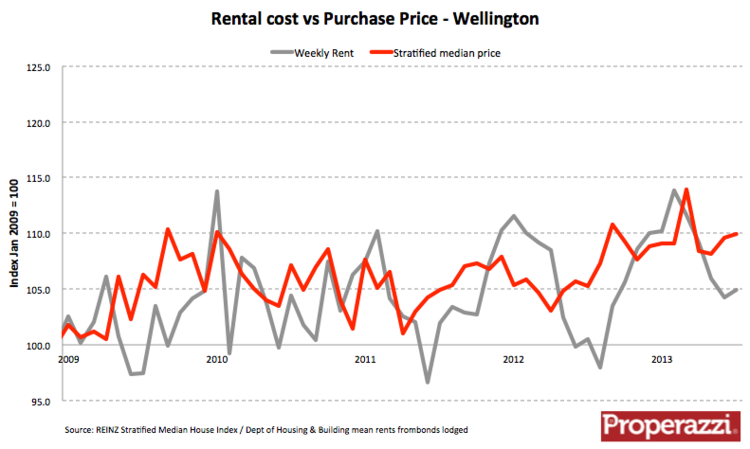Property as we all know is at its core, a fundamental of Maslow's Hierarchy of Needs, the primary need for shelter. Far more important than even safety and self-esteem and self-actualisation.
For this reason property exhibits the same fundaments of economics of supply and demand. When the supply of a good (in this case property) is limited, price go up as we have seen in Auckland as supply of property for sale has been constrained whilst demand has grown faster than supply and the access to finance has been relatively easy and cheap. These latter two components also impact the economics of property as does the substitution of property options between renting and buying.
If the cost of buying becomes affordable and the access to finance is available then people will buy, equally if it is cheaper to rent and finance becomes less accessible rental demand will grow and consequentially rents will increase.
This is all logical. Let's now examine these principles when applied to the constant media story of 2013 - the dire housing shortage in Auckland. We hear weekly how Auckland needs 20,000 or maybe 30,000 new homes to be built almost immediately as well as 350,000 homes over the next 25 years to solve the housing crisis.
If the housing crisis is so dire and is the reason why property prices of houses for sale are growing at double digit levels, then why is it that rental prices of property in Auckland are not growing.
This is very clearly seen in the chart below which tracks Auckland's stratified median house price over the past 4 years on an index basis with the red line; as compared to the index of mean rents based on bonds submitted to the Dept of Housing & Building with the grey line - the index is Jan 2009 = 100:
Click any chart to zoom.
The chart clearly shows that whilst property prices have increased by over 45% since the start of 2009 rents are up just 15% and the past 18 months have barely seen any change.
If Auckland really had a housing crisis then rents would be increasing - it's the same economics of supply and demand. To look for proof, look at the same chart for Christchurch below. The fact is that Christchurch has a real housing crisis. There are too few available properties to meet demand as a consequence of the earthquake and the subsequent rebuild programme. In that market both rents and prices are rising, almost in alignment:
Now look at Wellington, a market that is not suffering a shortage of property and we see an alignment of rental price appreciation to property sale price appreciation.:
This analysis would seem to support a view that the recent appreciation in property prices in Auckland have been fuelled by speculation.
With easy access to low cost finance over the past two years people have returned to property assets, this has been especially true of rental investment and property re-development. Investor growth has actually increased the supply of rental properties, which has as a consequence has maintained fairly stable rental prices at and contributed to a further tightening in the property-for-sale market through effectively taking home-owner stock out of the market.
To this has been added inbound migration demand into the region from both domestic and international sources which has often been accompanied by higher equity capacity which has only further stoked the property price inflation.
Former Realestate.co.nz CEO Alistair Helm is founder of Properrazi.co.nz.
Sun, 06 Oct 2013





